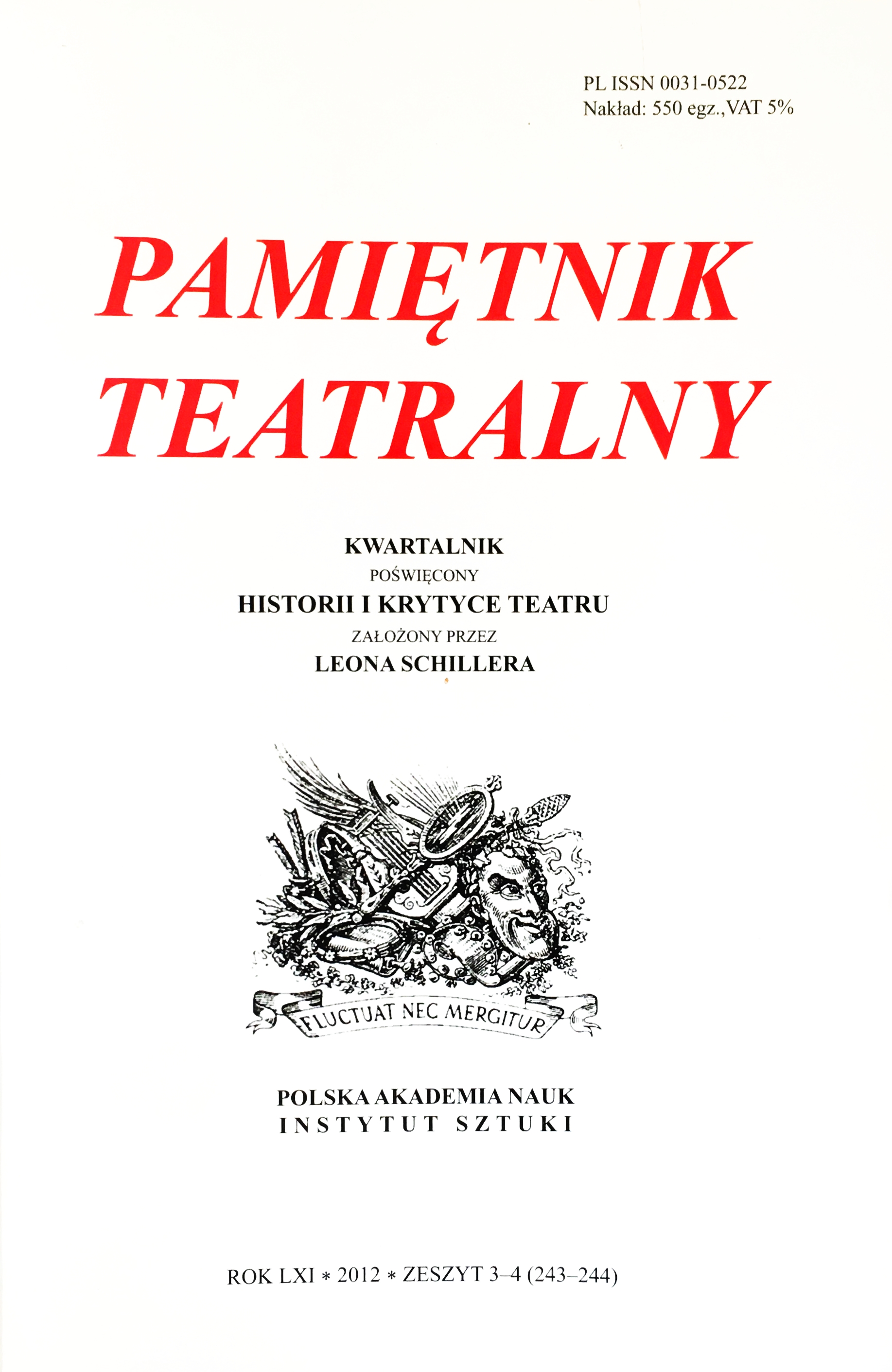Ludzie teatru – więźniowie Pawiaka (1939–1944)
Men of Theatre as Pawiak Prisoners (1939–1944)
Author(s): Janina HeraSubject(s): Theatre, Dance, Performing Arts
Published by: Instytut Sztuki Polskiej Akademii Nauk
Keywords: Polish theatre;theatre history;world war II;Poland during WWII;wartime conditions;
Summary/Abstract: In order to “solve the Polish issue”, which had always troubled the Germans and the Soviets so much, in 1939 the two invaders decided they had to kill the Polish elites of patriots who, after decades of being under the foreign rule during the partitions period, had managed to build the independent Polish state in just twenty years. Among them were teachers and university professors, priests, social and political activists, doctors, writers and artists. In Warsaw, the capital of the General Government of Poland, which was to become “as German a country as the Rhineland”, the process of “freeing the German nation from the Poles and Jews” often started at Pawiak, the Gestapo gaol on Dzielna Street, also known as the “human slaughterhouse”. This was the place where the Poles caught during random street arrests, or roundups, were detained unless they were shipped to the Third Reich for forced labour right away. They joined the prisoners arrested “individually”: potential troublemakers who might oppose the German rule, those accused of sabotaging German military equipment or “illegal activities”, i.e. working for the underground. They were penalised for un-Aryan descent or for rescuing Jews. They were tortured during bestial interrogations at the headquarters of the Nazi Sicherheitspolizei and Sicherheitsdienst on Szucha Avenue, and then they were shipped to concentration camps, sometimes with death sentences already. Others were simply executed right away. Such was also the fate of many actors and men of theatre gaoled at Pawiak. They, too, had been caught in roundups or arrested for their involvement in the underground. Some of them were to be remembered for many years to come by those few and fortunate who survived. Through their tales, recitations, song singing and theatre life gossips told to other Pawiak inmates at night, they were able to escape for a short while from the grim and terrifying reality, thus saving themselves and others from nervous breakdown. “By introducing patriotic notes, full of hope and optimism”, they sometimes managed to give fellow prisoners much needed encouragement.
Journal: Pamiętnik Teatralny
- Issue Year: 244/2012
- Issue No: 3-4
- Page Range: 37-86
- Page Count: 50
- Language: Polish

